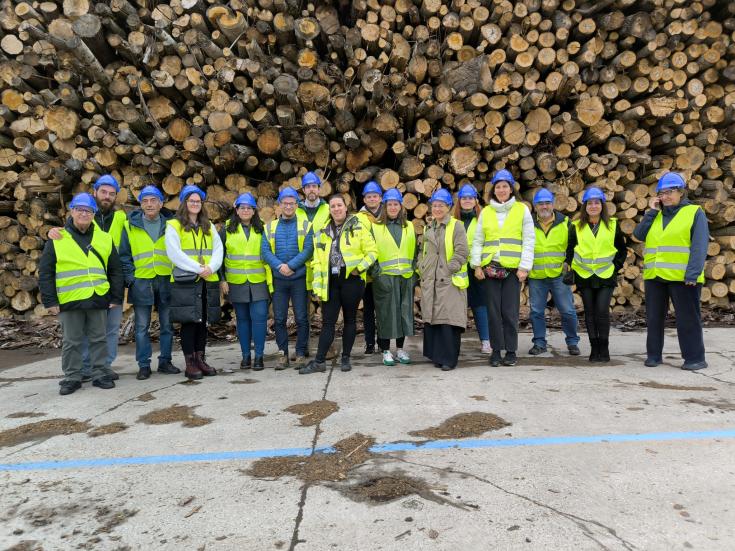3F Green Model 4th Study Visit - Hungary
In early October, PBN organized the 4th partner meeting of the 3F GREEN MODEL in Hungary. The project partners and their stakeholders participated in study tours and thematic workshops in Sopron and Szombathely.
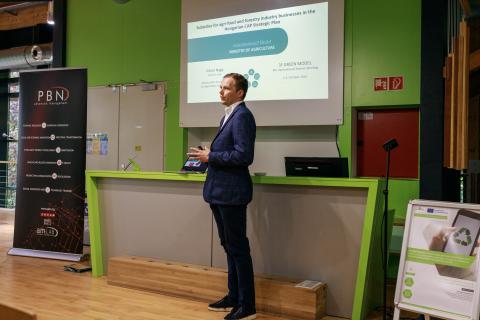
The two-day program started at the University of Sopron, where participants learned about Hungarian best practices at the workshop entitled "Energy efficiency: Renewable energies from waste in the agri-food and forestry value chain":
- The representative from the Hungarian Ministry of Agriculture provided a national overview, highlighting the support available for agri-food and wood industry enterprises within the framework of the Rural Development Programme and the CAP Strategic Plan, particularly emphasizing energy efficiency aspects.
- Focusing on the regional context, Councillor for Sustainable Development and Climate Policy of the Municipality of Szombathely presented the SECAP and the actions of the city related to the green transition,
- The Vice-Rector of the University of Sopron addressed the question of whether the large amount of by-products generated in the wood industry should be recycled or used for energy purposes, and presented the university's research related to energy derived from wood usage.
- The representative of Falco Zrt. demonstrated the wood industry company's efforts in the field of sustainability and green energy, energy efficiency, which the participants had the chance to observe first-hand the following day.
- The speaker from Pilze-Nagy Kft. illustrated the circular system of biogas production from mushrooms and introduced the MarginUP! project aimed at increasing the resilience of agricultural systems and biodiversity on low-productivity lands.
Following the workshop, participants toured research and testing laboratories related to wood processing and visited the main building of the wood chip-based biomass heating initiative on campus. 3 heating plants were established as part of a European project that concluded in November 2023, which cover the heating and hot water needs of 22 buildings and reduce the university’s greenhouse gas emissions.
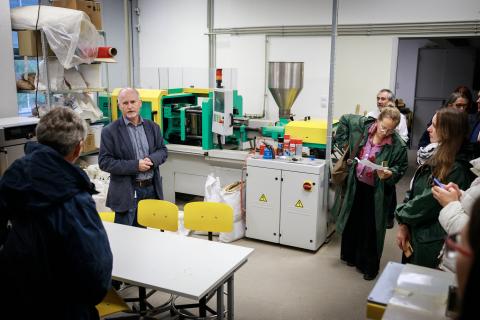
The next day, the study tour continued in Szombathely, where the group visited Falco, the most significant local wood industry company. Here, they followed the process of furniture panel production from raw material processing to the final product. Starting as a small sawmill, Falco has grown into one of Europe's leading producers of furniture and construction boards. Falco is at the forefront of sustainability and the circular economy and collaborates closely with Szombathely's local government to convert green waste and wood waste into secondary raw materials.
The company uses wood residues, small logs, secondary materials from the sawmill industry, packaging, and household wood waste, as well as recycled wood, to produce high-quality processed wood chipboard products. All waste products are sorted and recycled in their own state-of-the-art processing facilities, ensuring that wood, as a scarce resource, is valued and kept in circulation as long as possible.
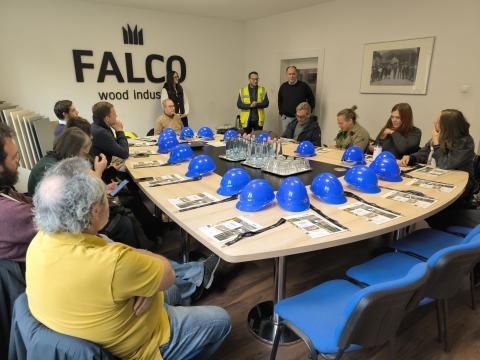
The program concluded at PBN’s premises, where the company’s team gave an exciting demonstration at their digital innovation centre, showcasing, among other things, how 3D printing can produce finished products with minimal waste and how the company has made advancements in production optimization through the use of green energy.
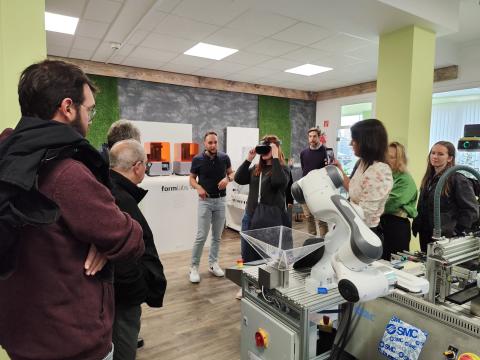
The next partner visit takes place in Ireland, in May 2025.
